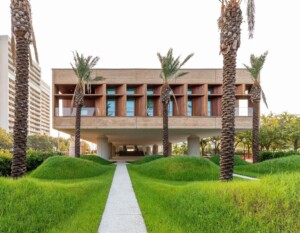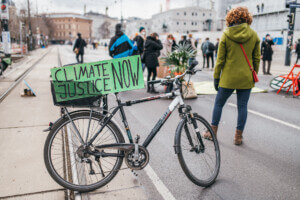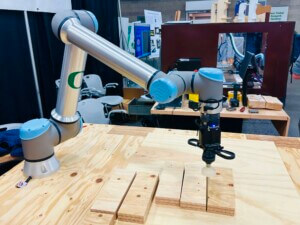It’s a lengthy journey from Dubai’s original city center to the Expo City Dubai grounds, which hosted the UN Climate Change Conference known as COP28. One can either hire a car and fight Dubai traffic for 40 minutes, or take the elevated train for an hour and half. I chose the latter, becoming a daily passenger of this train traveling back and forth across the expanse of the city as a part of the Architecture 2030 delegation.
Like many, I arrived rather cynical about this iteration of COP. Given the choice of location and as well as the leadership, it all seemed rather paradoxical and problematic on the surface. My initial impressions of the city—the embodiment and dead-end of globalization—only served to reinforce my pessimism of this COP providing the outcomes required of the moment. Looking out across to the endless spikiness of the city from the observation deck of the Burj Khalifa produced a profound sense of doubt in our collective ability to harness our intelligence and resources sustainably. Traveling past the world’s largest gas-powered power station en route to the Expo was an omnipresent reminder of the emissions fueling every aspect of the city, and this event.
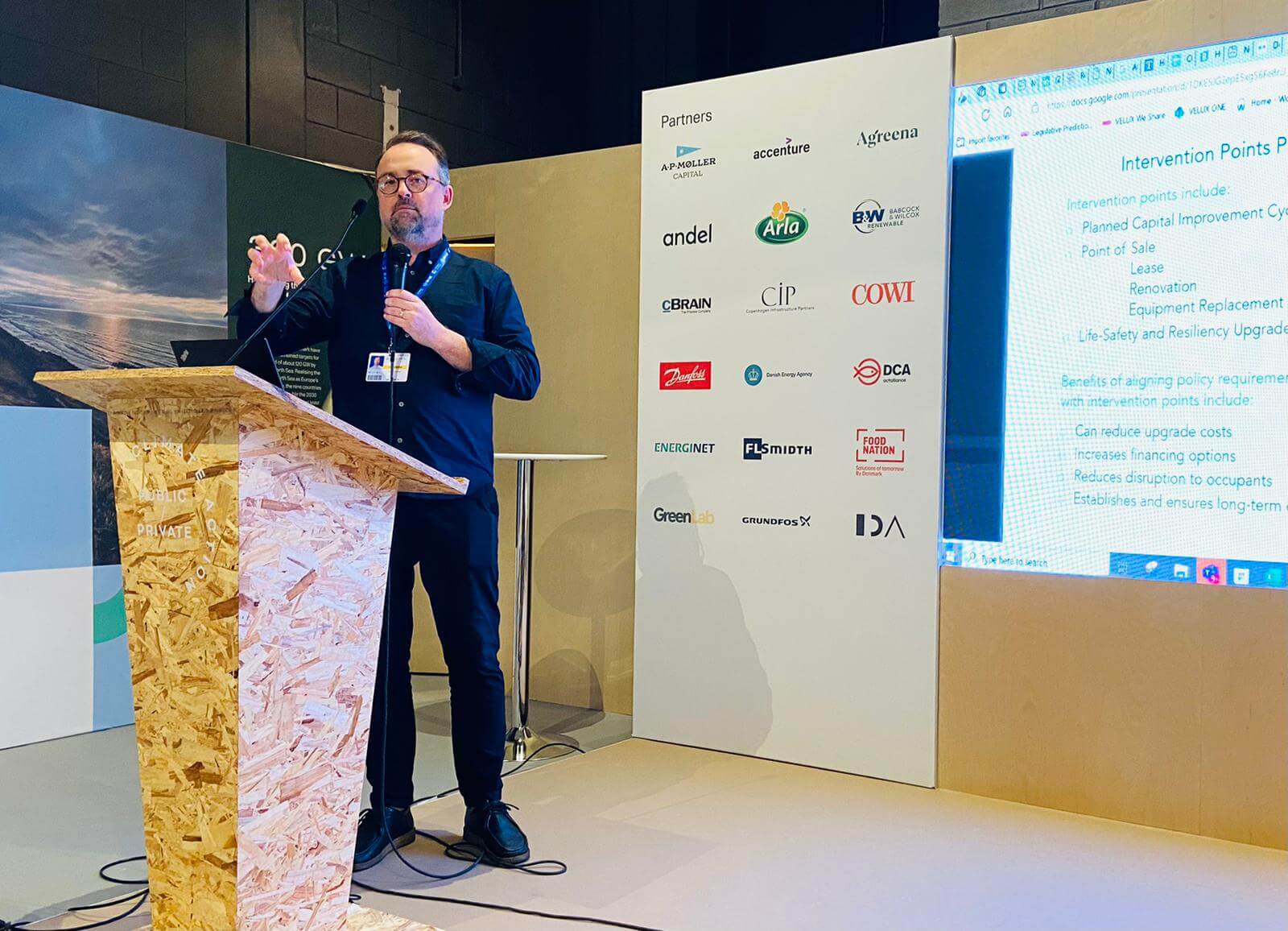
Then I entered COP, one of roughly 100,000 participants in what can only be explained as the biggest annual convening of people working toward a shared future. To get to the Business + Buildings Pavilion, one passes by the main plenaries and meeting rooms where high-level negotiations are ongoing; other thematic venues (youth, women, gender, food, health, etc.), and a field of national pavilions.
Outside of various panels and speaking events I was humbled to participate in on behalf of Architecture 2030, my time was spent attending as many other events and conversations as possible. I met longtime heroes and future collaborators at the Building Pavilion’s incredible list of events. To get outside archi-bubble I’d poke my head into the Canadian pavilion to better understand my home country’s approach to the daily thematics—meeting compatriots from the forestry and agriculture sectors talking about biomaterials in the process. I witnessed the daily protests and events organized across the expo grounds, led largely by the world’s youth and marginalized populations. My days would conclude in the main hall of the event where the days summary proceedings and announcements took place, one of which being the announcement of the Buildings Breakthrough that included Canada and the United States as initial signatories. I left the Expo grounds inspired, daily.
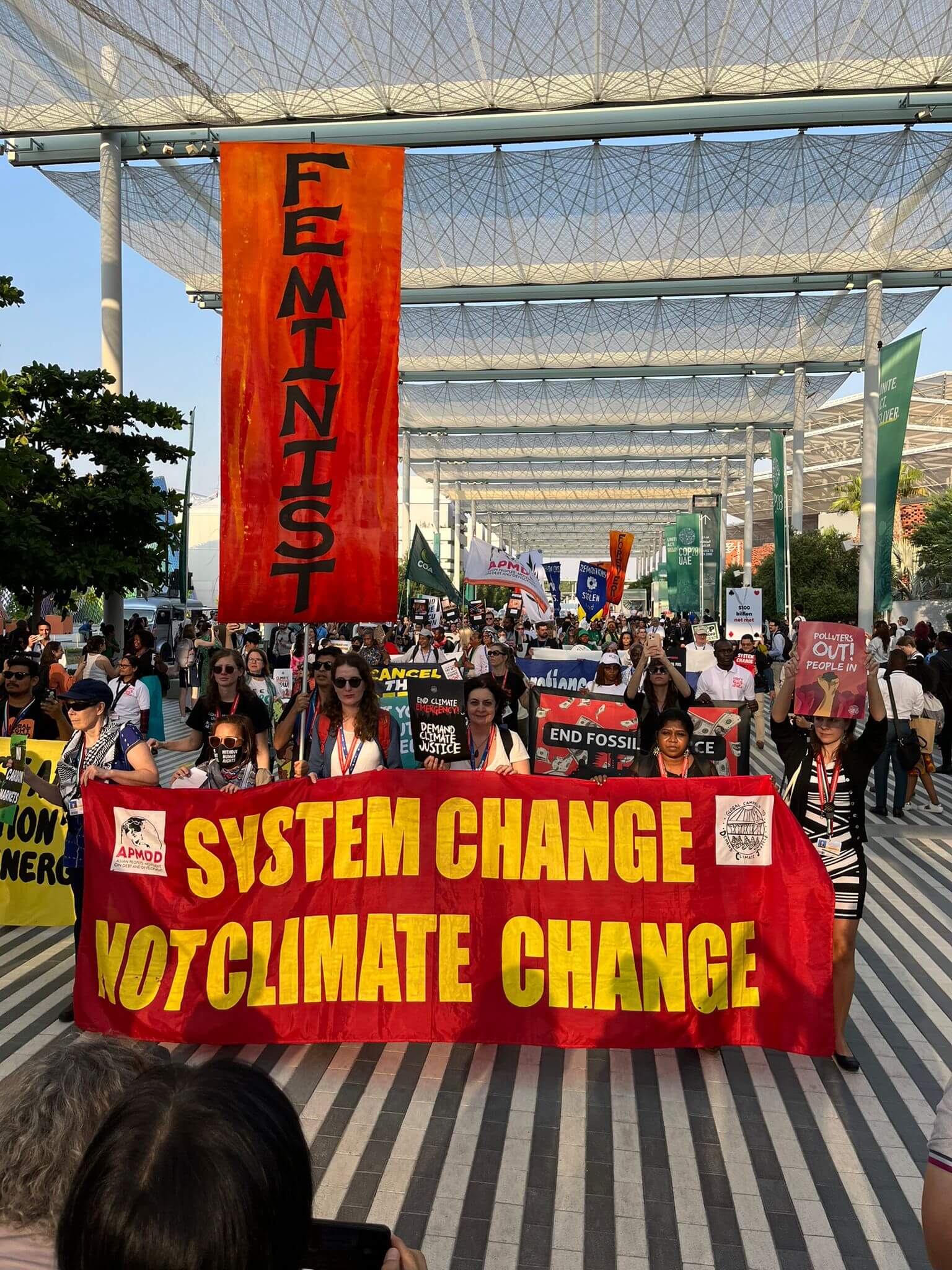
I’d then board the train back to the hotel, sitting alongside the other lanyard-wearing COP attendees. On the journey back to the hotel from my last day at the conference, I found myself sitting across from two members of the Iraqi Negotiation Team. Acknowledging their frustrated tone, I asked them how talks were going—knowing that the final two days remaining were reserved for finalizing a negotiated agreement between all parties. They responded: “Phasing out will kill us. How can we sign that?” Two days later, COP28 concluded with an agreement omitting that language, instead employing a “transition away from fossil fuels in energy systems, in a just, orderly and equitable manner, with developed countries continuing to take the lead.”
I’ve been reflecting on that conversation since, and what it means to be taking the lead. How can we expect countries like Iraq, scarred by decades of war and occupation completely reliant on the export of crude oil for income, to agree to phase out oil production in the next two decades without first working with them to develop a transition plan? Moreover, how do we as North Americans—the world’s largest emitters amongst G20 nations—first phase out fossil fuels and provide the world a vision that is just, orderly, and equitable in the process?
At the heart of this phasing out are questions of how we will design, build, and maintain our built environment. Can we phase out fossil fuels in our buildings and landscapes this decade? Why do we continue to operate under the belief that fossil fuel–based products are a necessity in both construction and operations? Why are we filling our buildings and public spaces with highly emissive plastics that simultaneously introduce novel chemicals into the biosphere and our own bodies? When will we return to the naturally abundant, local materials that shaped our societies until the advent of the refinery? When will we Just Stop Oil in architecture?
Kelly Alvarez Doran is cofounder of Ha/f Climate Design; an adjunct professor at the University of Toronto’s John H. Daniels Faculty of Architecture, Landscape, and Design; and a senior fellow of Architecture 2030.








